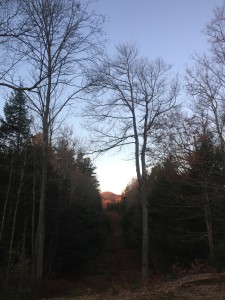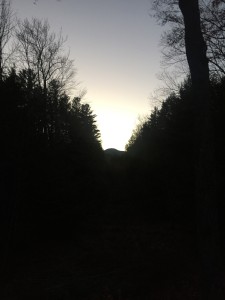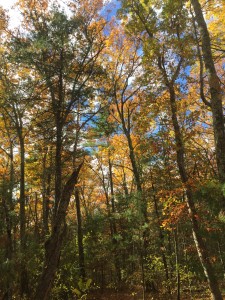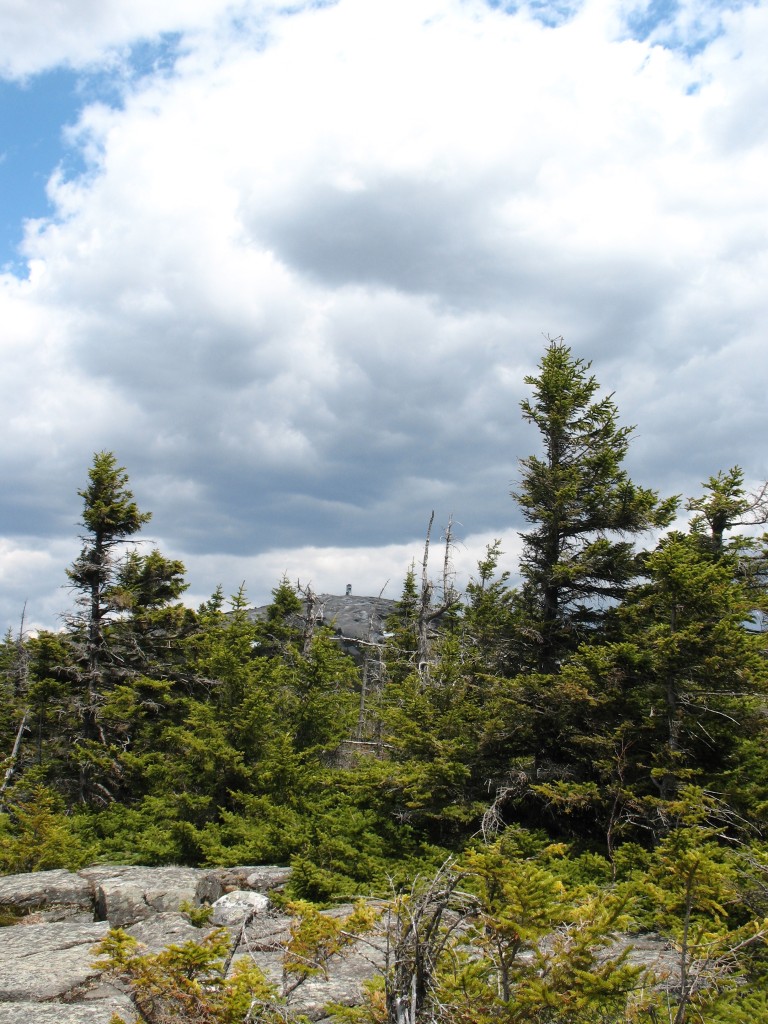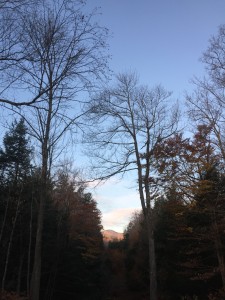All summer and far into the fall I unconsciously went by the newspapers and the news, and now I find it was because the morning and the evening were full of news to me. My walks were full on incidents. I attended not to the affairs of Europe, but to my own affairs in Concord fields. Thoreau, Journal
It took more than the Concord fields to lever me away from the news, but recent national “incidents” were enough.
After the election, we went away to the mountains. The old, blue route there was still lined, in places, by signs, mostly the victors’, but even they were bent and wind-battered. As we drove, a cold front blew in, tearing even the resistant oak leaves from their branches, and it caught drifts of brown leaves, chasing them in waves over the tar; at times it looked as if we were crossing a river.
We bought days of food and drove up the right wing of the valley, crossing finally on to the last mile of dirt road, and, once we’d unloaded and set the heat to warm, we put on orange hats to distinguish us from deer and walked farther up valley. The wind racketed in the bare trees; a few small-grained snow flurries coursed through, speckling our dark coats, melting like little points of winter on our hands. We wouldn’t climb the mountain, but our walk brought us closer to it.
That night November dark shut down quickly, the sun gone behind the ridge just after 3:00, some remnant clouds blotting up its after-light. Before the moon – nearly full – rose later, the dark was absolute, the only news was the cold front’s still-rising winds. Part of this mountain valley’s appeal lies in its modern remoteness. Yes, a road winds to it, but no signal follows – phones don’t work, e-mail can’t chirp and all the instas go mute. Perhaps because there are more cellar holes than cellars on this road-going-to-trail-going-nowhere, forcing coverage in here is low priority. It felt good to out-distance connection and comment.
Late that night, the moon rose, arcing up over the mountain, bright enough to paint shadows across the open ground; you could see the dark, flying leaves lifted by the wind. Not remembering its proper seasonal name – surely it is beyond harvest – we called it the Selection Moon and watched its light and dark fingers point and wave, picking out possibility, suggesting the way the fronts keep coming over the ridge, scooping up what’s left, sorting it briefly and laying it down again.
Still, even under the racketing wind and the juddering moon, a little peace took hold. This valley is a sort of Walden.
We have, of course, returned – we have work; we have a place too in the current turmoil. That’s as it should and must be. But the mountains are and have a place too, a place where the shapes of ridges admit only the oldest news.

